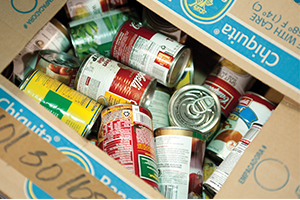Global hunger has reached an alarming level and could grow worse as the Covid-19 pandemic stretches on, said Catholic Relief Services last week.
The organisation issued a new analysis identifying food crises in 14 countries, including the Democratic Republic of Congo, Nigeria, Somalia, Yemen, Venezuela, and Zimbabwe.
“In addition to the tremendous health and economic impacts of this disease, Covid-19 has plunged millions of families further into poverty, threatening their ability to put food on the table,” said Sean Callahan, CRS president.
“As we near the one-year mark of this pandemic, it’s important to acknowledge and tackle the broader toll Covid-19 has taken on especially vulnerable countries, many of which are combating simultaneous crises,” he said in a March 10 statement.
The pandemic has created a loss of income for many people, constrained government funding, deepened social inequalities, disrupted trade and supply chains, and restricted non-profit groups’ access to vulnerable areas, CRS said. Combined, these factors have impacted millions of people’s access to food.
The World Bank has reported that for the first time in 20 years, global extreme poverty levels have been on the rise. The report said an estimated 110 to 150 million people worldwide are in extreme poverty.
A report by the World Food Program (WFP) last June predicted that an additional 121 million people will have experienced intense food insecurity by 2021. This is an 82% increase from numbers prior to the pandemic.
To counter these challenges, Catholic Relief Services has suggested that aid organisations scale up voucher systems for food, support food storage, reach out to isolated groups, consider the impact of the virus on women in particular, and promote cooperative data collection.
The organisation has also called for policymakers to increase foreign aid and support locally led responses, such as the actions of faith-based organisations.
“As the pandemic drags on, and vaccines are still out of reach for many developing nations, they will likely experience additional waves of the virus that will further exacerbate food insecurity,” Mr Callahan said.
“We must act now to avoid a catastrophe, and before decades of development gains are lost.”


